Reintegration, Reconciliation, Social Cohesion : So That Peace, Sustainable Development Maybe Assured
- Par Kimeng Hilton
- 02 Sep 2025 17:16
- 0 Likes
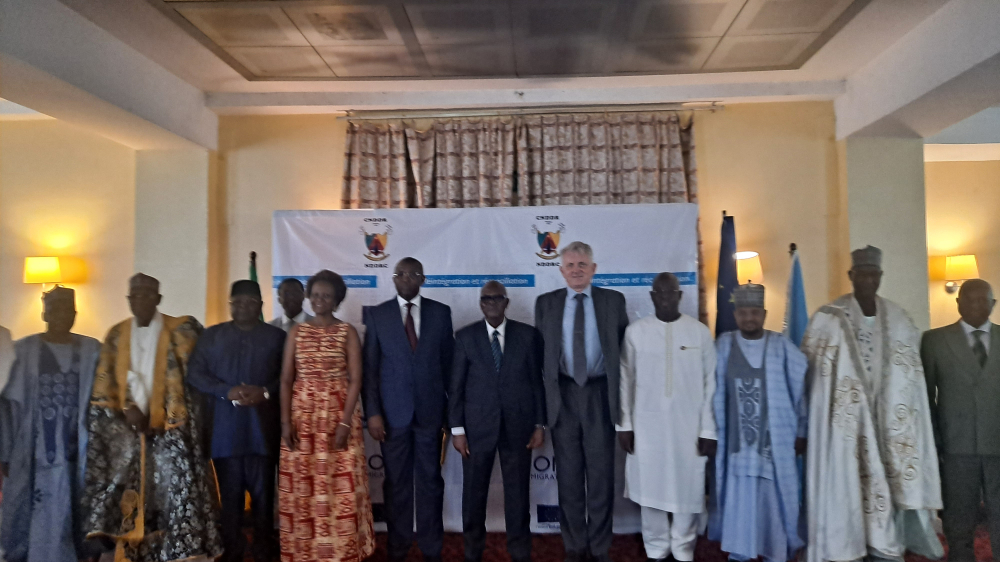
The United Nations Children’s Fund, UNICEF and the International Organisation for Migration, IOM on September 2, 2025 launched a new project in Yaounde. To foster reconciliation amongst former associates of Non-State Armed Groups in the Far North Region.
The International Organisation for Migration, IOM and the United Nations Children’s Fund, UNICEF have launched a new project aimed at coordinating the reintegration of people formerly associated with Non-State Armed Groups, NSAGs in the Far North Region. The launch in the Cameroonian capital, Yaounde, on September 2, 2025 sought to raise public awareness to increase acceptance of the reintegration and reconciliation process. Of former associates of armed groups in Cameroon’s northernmost administrative region. A region ravaged by more than 20 years of violent Boko Haram-led insurgency.
Over 700 Ex-associates Integrated
Thus, the launch of “Supporting the Reintegration and Reconciliation of Former Associates of Non-State Armed Groups to Strengthen Social Cohesion for Peace and Sustainable Development in the Far North of Cameroon" project. It is implemented by UNICEF and IOM on behalf of the National Disarmament, Demobilization and Reintegration Committee, NDDRC and the Cameroon government.
The project focuses on three divisions of the Far North Region - Logone and Chari, Mayo-Tsanaga and Mayo-Sava. As at now, over 3,000 Cameroonian ex-associates of armed conflict have been received in DDR centres, with 708 reintegrated into their societies. The 18-month project is funded by the European Union at the cost of over 3 million Euros.
The Wealth Of Experience, A Plus
Justin Koffi, Acting Resident Coordinator of the United Nations System in Cameroon commended Cameroon for its ceaseless efforts in striving for a return to normalcy in the Far North Region. He lauded the National Disarmament, Demobilization and Reintegration Committee for fostering peace and reconciliation. Koffi said IOM’s 30-plus-years of experience in migration and UNICEF’s rich background in working with children will be an added impetus to the implementation of the project.
Probable New Take-off
“Armed conflict has profound impact on women and children, aggravated by the effects of climate change,” Koffi said. Noting that the scope of the project was enormous as it would include ex-associates and also offer them opportunities for vocational training to start new lives. “Peace is the ability to resolve conflicts through peaceful means and not the absence of war,” Justin Koffi underscored. Expressing hope that the project will mark a new take-off in the disarmament, demobilisation and reintegration process in Cameroon.
Reintegrating Boko Haram Victims
According to Jean-Marc Chataigner, Ambassador of the European Union to Cameroon and Equatorial Guinea, the EU’s funding of the project is to help in the reintegration former Boko Haram associates in the Far North Region. By returning and settling them in their home communities to lead normal lives.
600 Ex-associates Undergoing Integration
“We are working together with the National Disarmament, Demobilization and Reintegration Committee, the International Organisation for Migration and the United Nations Children’s Fund. The reintegration of 600 ex-associates is currently underway under the first phase of the process. We hope to continue to enable these people to settle down with the support we offer,” Chataigner said.
The Root Causes
“Between ex-combatants and communities that suffered the effects of armed conflict, we want to see reconciliation and improvements in their lives economically. In the long run, we would also like to address the root causes of the conflict - why young people joined Boko Haram in the first place - such as extreme poverty, unemployment, governance issues, corruption…,” he stated.
Vocational Training
Col. Dzozong Alienou Guy Alain, the Deputy Coordinator of the National Disarmament, Demobilization and Reintegration Committee, the organisation reintegrated 703 ex-associates of Non-State Armed Groups in December 2024 - including ex-combatants, women, children. “We have created three centres for hosting and training ex-associates in various vocational trades to facilitate their reintegration into society. These centres also have schools for children of ex-associates.
Innocent Victims
“There is need to improve the living conditions of host community people and victims of the conflict. Amongst the ex-associates of armed groups are people who found themselves drawn into the conflict by ignorance. There are also victims of the conflict who need to overcome the trauma they underwent, forgive and live in harmony with others,” Col. Dzozong disclosed.
Lifeline Funding
“Since the creation of NDDRC in 2018, 95 per cent of our financing has come from our funds. Meanwhile, huge numbers of people continue to join our centres and it is not possible to meet their needs with our meagre resources. The European Union has thus offered us a lifeline to resolve the conflict peacefully,” the NDDRC Deputy Coordinator said.
About Adolescents, Children
Nadine Perrault, Country Representative of UNICEF Cameroon recalled that her organisation has a special mandate with the Convention of the Rights of the Child and other protocols on the situation of children in armed conflict, which was ratified by Cameroon. “Concerning the “Supporting the Reintegration and Reconciliation of Former Associates of Non-State Armed Groups to Strengthen Social Cohesion for Peace and Sustainable Development in the Far North of Cameroon" project, UNICEF will work with children.
Victims Of Forced Conscription
“Children have been victims of forced recruitment into armed groups. Most of the time, children are at the forefront of conflict; are often separated from their parents, displaced, etc. We hail the decision of government and NDDRC to reintegrate the first set of ex-associates last December into their communities – which included children.
In Order To Give Children Hope
“UNICEF will work for the reintegration of all adolescents and children of host communities. We will ensure that these children have access to safe spaces and psycho-social support and can return to normal lives, go back to school, have the health services they deserve (vaccination, nutrition…) Above all, the goal is to give children hope that they are not abandoned, but will soon rejoin their families and lead normal lives like children elsewhere in the country,” Nadine Perrault promised.
Persistent Insecurity
The Far North Region of Cameroon faces persistent security crises linked to the activities of Non-State Armed Groups, NSAGs, which profoundly affect local communities. These dynamics exacerbate the vulnerability of populations, fuel forced displacement, and undermine social cohesion.
Containing, Coordinating Returnees
Despite the establishment of the National Disarmament, Demobilization, and Reintegration Committee, NDDRC in 2018 and the existence of transition centres in Méri and Mémé, the rehabilitation and reintegration process for former members of the armed forces remains a major challenge. The increase in spontaneous returns to communities underscores the urgent need for a coordinated and inclusive approach.
Joint Implementation
Faced with these challenges, the project "Supporting the reintegration and reconciliation of former associates of Non-State Armed Groups in order to strengthen social cohesion for peace and sustainable development in the Far North of Cameroon," is implemented by the International Organization for Migration, IOM and the United Nations Children's Fund, UNICEF.
European Union Support
With the support of the European Union, EU through the Instrument contributing to Stability and Peace, IcSP of the Foreign Policy Initiative, FPI. The project aims to support the sustainable reintegration of f...
Cet article complet est réservé aux abonnés
Déjà abonné ? Identifiez-vous >
Accédez en illimité à Cameroon Tribune Digital à partir de 26250 FCFA
Je M'abonne1 minute suffit pour vous abonner à Cameroon Tribune Digital !
- Votre numéro spécial cameroon-tribune en version numérique
- Des encarts
- Des appels d'offres exclusives
- D'avant-première (accès 24h avant la publication)
- Des éditions consultables sur tous supports (smartphone, tablettes, PC)







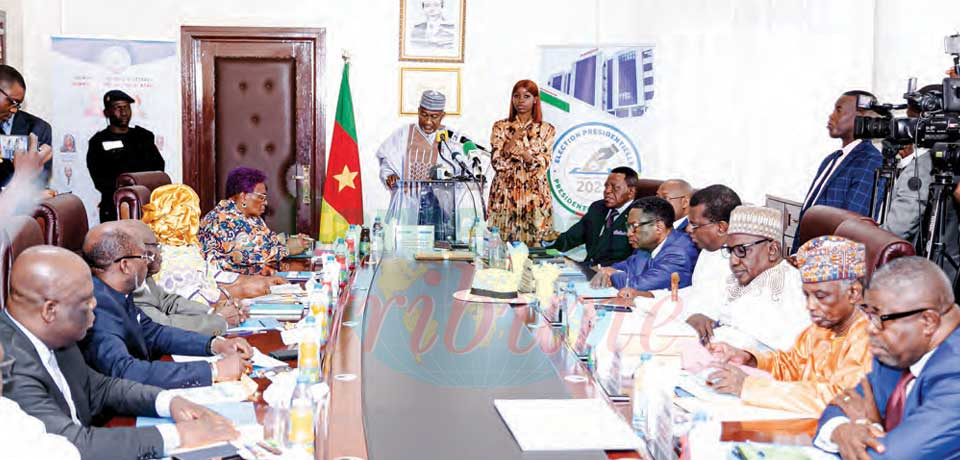
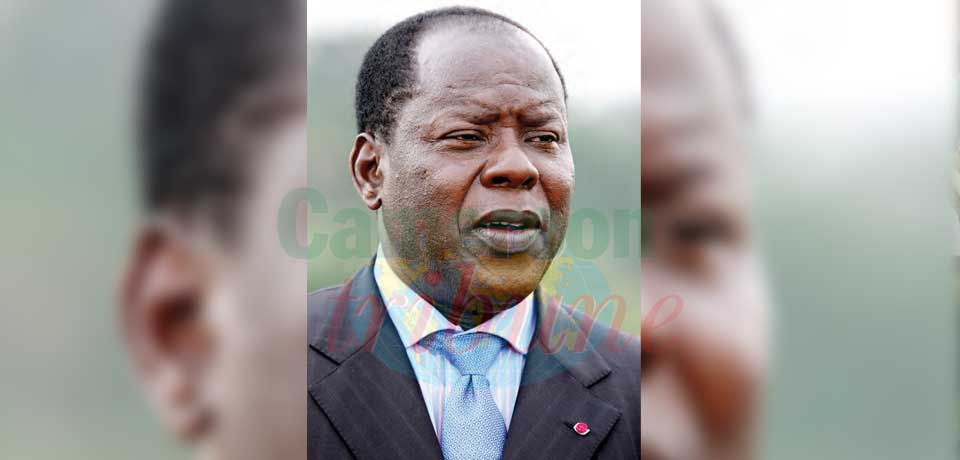
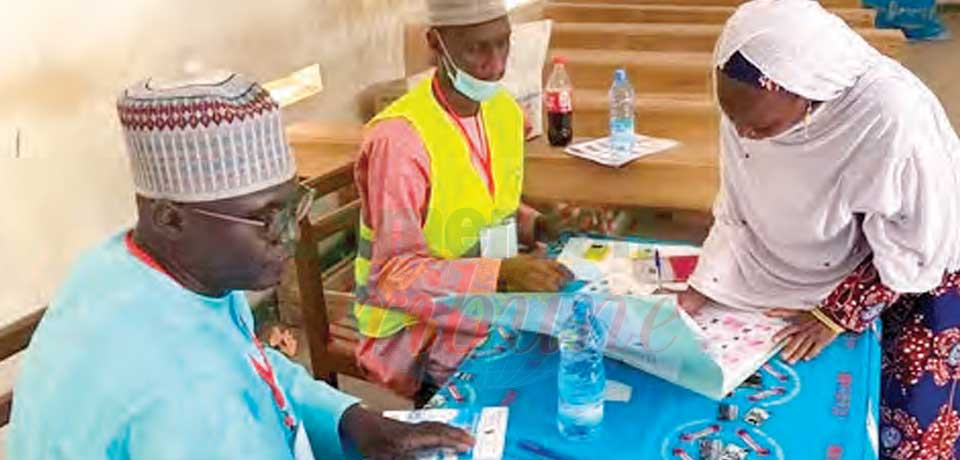
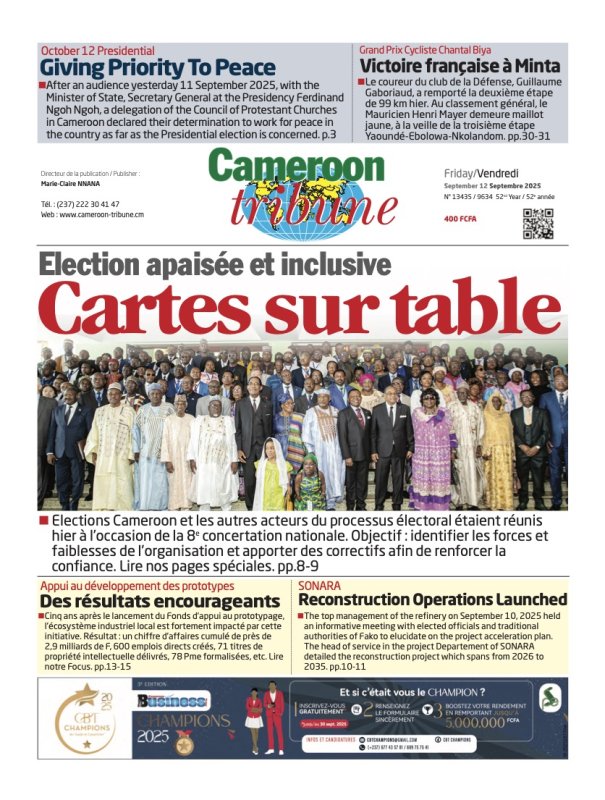




Commentaires